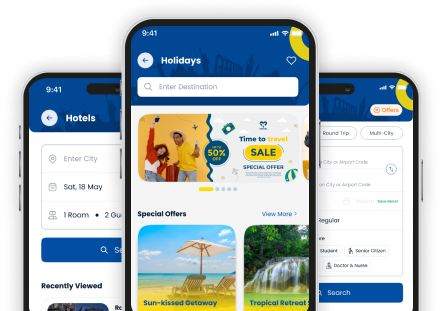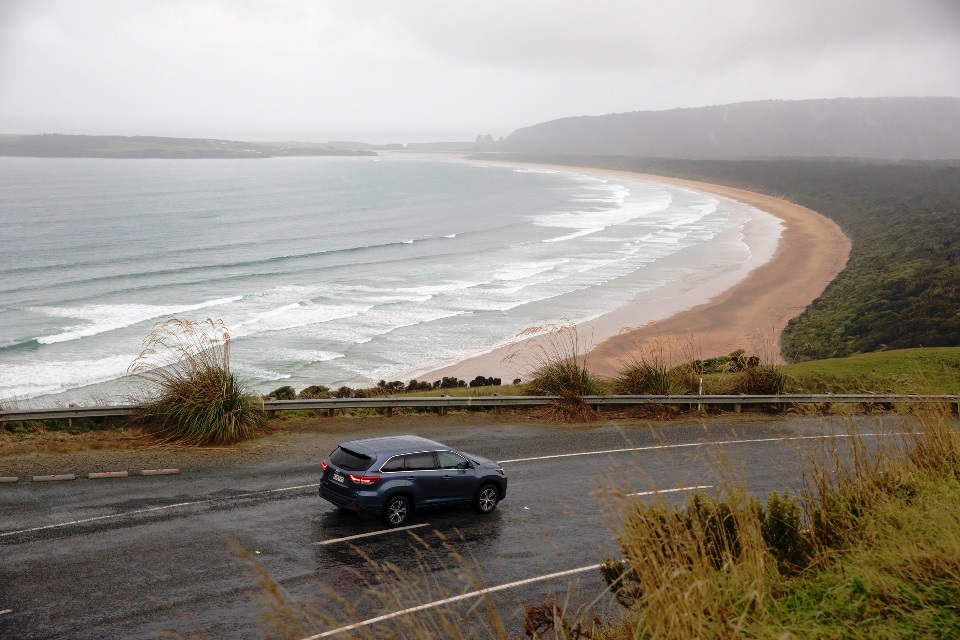How to travel in New Zealand like a pro? Five travel tips that will come in handy
If we were to interview ten people about places they want to visit, at least eight of them would have New Zealand on their list. And why not? It’s snow-covered mountains, serene beaches, unique wildlife and fascinating (Māori) cultural practices have made it an important part of people’s bucket list.
It’s easy to decide to visit the Kiwi country. It is also easy to go ahead and make the bookings. But, what’s difficult is ensuring that one is able to make the most out of the trip. After all, one only has a limited number of days to explore this exotic country, right? So, here are some useful tips from Thomas Cook to you- to help you make the most out of your New Zealand vacation-
Best Time to Visit:
As is common knowledge, New Zealand’s seasons are the reverse of those in the Northern countries. What this essentially means is that December through February are the summer months in New Zealand. And, since summer suits most people, all major tourist spots in the country are swarmed by local as well as overseas tourists. So, if you’re planning to take a summer vacation, you must plan well in advance to ensure you get the best packages possible. Thomas Cook has exclusive packages for various group sizes and durations.
The best time to visit, however, will also depend on the kind of activities you and your accompanying group is interested in. For winter activities, like skiing, it is advisable to visit during the winter months of June and July.
We would recommend visiting during the spring or fall seasons during which tourism is relatively quieter, and one can enjoy a little bit of all seasons.
Narrow down your agenda:
If you’ve read our take on the activities and sights New Zealand offers, you would know that when it comes to this extraordinary country, there is just so much to do! And, in all practicality, it is nearly impossible to do all of that in just 10-15 days. For this reason, we advise all travelers to narrow down their agenda, and to decide which part of the country they would like to focus on. In constraints of budget and time, which are very normal, you must decide whether you want to explore fully the North Island or the South Island. Once you have clarity on this, it will get easier for you to plan your trip economically, inclusive of connecting flights, internal transportation, accommodation, activities and sight-seeing!
How much money is enough money?
Even in this age of digitization there exists a certain paranoia of not carrying enough cash and eventually running out of. But, for the sake of convenient and safe travelling, it is advisable to carry plastic money- travel cards, credit cards or international debit cards. Almost all restaurants hotels, shops and other business establishments in New Zealand accept card payments. All you have to do is find out from your respective bank about any additional charges on foreign transactions.
Packing Light- nearly impossible but extremely important
When on a vacation, most of us want to look our best selves- partly because we want nice pictures, and partly because we want to feel good and confident in a new land. But, with this need to look and feel good also comes the added burden of carrying so much. Not only does extra luggage become problematic at the airport, but it also becomes a problem to carry around, especially when there are a lot of connecting flights and domestic transfers involved. The best way to go around packing light is to buy a smaller suitcase. Psychology (and we) say (and hope) that you will only carry as much as would fit in your bag.
However, having said that, it is also important to pack all the essentials.
Here’s a special Thomas Cook list of what one must not forget to pack:
- Extra copies of your passport, visa and other important documents. This is the basic 101 of travelling- especially international travel. Have copies of important identification documents, visa, and insurance documents handy- either with you at all times or on your email from where you can access them quickly.
- Carry an extra debit or credit card. You can decide to have a freeze put on it so that you don’t spend more than what you’d decided. But it is always a good idea to carry extra funds with you, provided you need to use them in an emergency.
- Basic first aid: If we look forward to all the pleasant situations we could be in, then we must also be prepared for all the unpleasant situations we could land ourselves in. For this, it is important to carry a small first aid pouch with you. Ideally, this should have band-aids, antibacterial ointments, and the medicines for nausea, diarrhea, cold, fever or any other ailment that you know you’re susceptible to.
- If you’re travelling during the New Zealand summer, ensure that you carry sturdy boots for hiking, t-shirts and comfortable hiking pants, sunblock (and lots of it), light, refillable water bottles, sunglasses, sun visers, and swimming suits.
If you’re travelling in the winter, carry layers- warm jackets, waterproof jackets, wind-beaters, fleece jackets. Ensure that you carry gloves, caps and mufflers, too. As beautiful as the snow looks during the winter, the winter can be a little ruthless on some, especially on those who are not used to the low temperatures.
Prepare for the expected:
When going to a foreign country with cultural practices different than one’s own, it is always a good idea to read about the country’s culture and practices so as to not unintentionally offend anyone there, and certainly, to make the most out of one’s experience. While there are not many conventions that New Zealanders are uptight about, there are just some things you should keep in mind:
- Remember to take your shoes off before entering a Māori meeting house (called Marae).
- Remember to walk on the left side of the footpath.
- Remember to respect the personal space of anyone and everyone around you.
- If and when invited to a barbeque meal, do not forget to carry something (starters, dessert, etc.)
These are only some things that all travelers must keep in mind. Of course, the more one reads about a place, the more one can learn and hence, enjoy. Based on your personal preferences and routine, there are many other things that you could add or subtract from the list. But, for the big things in the larger scheme of things, Thomas Cook is here to settle all your travel plans.











